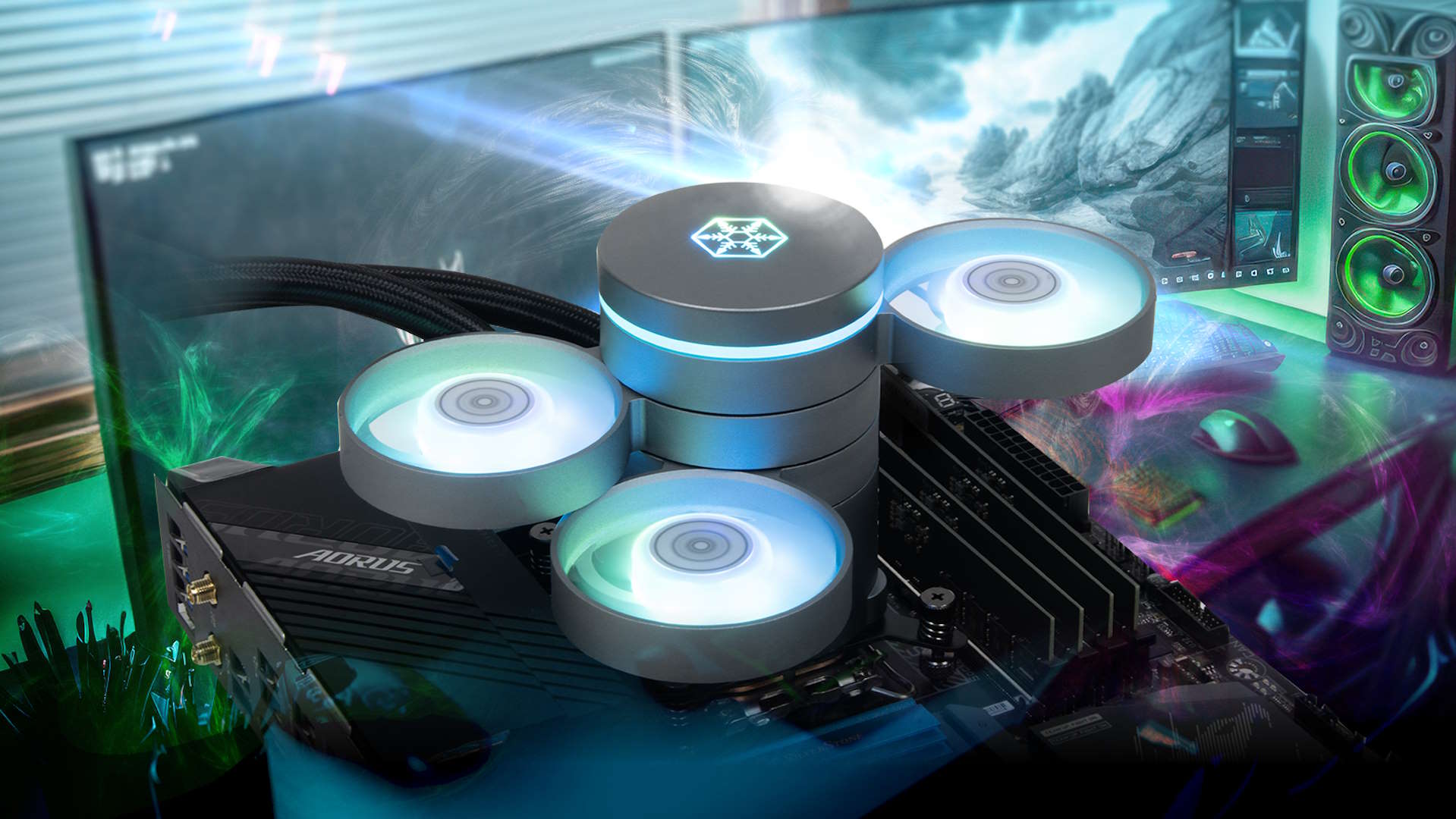As any good PC enthusiast will tell you, adding fans for optimal cooling can get pretty fiddly at times. So SilverStone has decided to do something about this with its new range of AIO coolers, that honestly look absolutely nuts.
Highlighted by PC Watch, SilverStone’s IceMyst closed-loop CPU coolers, first unveiled at Computex this year, are now on sale. Nothing special about that, you may think, but the IceMyst line has one stand-out feature. The integrated CPU plate and pump can be separated from the rest of the loop and additional fans, bought separately, can then be slotted in between.
The idea behind it is to provide additional cooling for the system RAM, motherboard VRMs, and other components. But just look at the example on the bottom right of this picture:
Ignore the fact that you’ll never realistically fit that into most cases, seven extra fans will shift so much air that you’ll feel a constant breeze around your ankles. And then there’s the noise: The extra fans are 70mm in diameter and can spin up to 2800rpm. The phrase ‘angry bees’ comes to mind.
My biggest concern about it all is that everything just clips together and there doesn’t seem to be any locking mechanisms to prevent the components from separating. Hopefully, I’m very wrong on this point, but if I’m not then the whole thing is just adding multiple failure points in your cooling system.
(Image credit: SilverStone)
(Image credit: SilverStone)
(Image credit: SilverStone)
At around £184 in the UK for the 420mm version, this setup is not cheap. And that’s without any extra fans to play with, and I can’t find a price on those. I guess the full range is going to take a little while to come to market, and I can’t find hide nor hair of it in the US yet.
To be fair to SilverStone, it all looks pretty cool (pardon the pun) and there is some merit to the idea. I’m just not sold on how safe it all is.
Fingers crossed we’ll be able to get one in for testing soon, and you can be sure we’re going to load that bad boy up with as many fans as we can squeeze onboard before it topples over. At the very least, nothing in the test rig will ever catch fire if it springs a leak!










